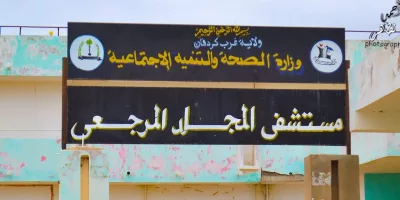The Committee for Justice (CFJ) stated that forced deportation is a blatant violation of fundamental human rights and exposes individuals to the risk of torture and ill-treatment if returned to countries known for their poor human rights records. It added that the reliance of some judicial systems on international warrants issued by repressive political regimes enhances the use of these tools for purely political goals, in clear violation of principles of justice and fairness.
Abd El-Rahman Yousuf Al-Qaradawi, who was recently arrested at the “Al-Masnaa” border crossing while returning from Syria to Lebanon, is a living example of these practices. He is an Egyptian poet and writer, and the son of scholar Yousuf Al-Qaradawi. He is known for his opposition to repressive regimes in the region, including the Egyptian regime, and for his poetic writings that address issues of freedom, social justice, and criticize political repression in Egypt.
Over the past years, Abd El-Rahman has been subjected to a series of in absentia court rulings that international human rights organizations widely consider to be politically motivated. Among these rulings was a three-year prison sentence in the case of “insulting the judiciary” in 2016, a charge frequently used in Egypt to silence opposition voices. The Court of Cassation upheld this sentence in 2018, in the absence of the accused during the trial, raising doubts about the fairness of the legal procedures followed. This case adds to a series of politically motivated trials, with Egyptian authorities accused of using them to settle scores with opponents.
These rulings coincided with a widespread media campaign led by media outlets aligned with the Egyptian regime, which worked to tarnish Abd El-Rahman Yousuf’s reputation through politically motivated accusations. This incitement campaign contributed to creating a hostile environment that increases the risks of ill-treatment if he is handed over to the Egyptian authorities.
For his part, Lebanon’s Prosecutor General, Judge Jamal Al-Hajjar, stated that Yusuf Abdel Rahman was arrested based on an arrest warrant issued by the Egyptian judiciary, explaining that the Egyptian warrant concerns a sentence of three years in prison for his conviction on charges related to opposing the Egyptian authorities and inciting terrorism.
Al-Hajjar added that the Lebanese judiciary will request the Egyptian authorities to provide the judicial file of “Al-Qaradawi” to consider the request for his extradition, stating that “The conditions of extradition will be studied to ensure compliance with Lebanese law, and if the legal conditions are not met, the Lebanese judiciary will issue a recommendation against extradition.” He emphasized that the final decision rests with the Lebanese government.
CFJ points out that Lebanon, as a party to the Convention Against Torture, is legally obligated not to extradite Abdel Rahman Yusuf to Egypt due to the clear risk he faces there, according to Article 3 of the Convention, which stipulates that “No State Party shall expel, return or extradite a person to another State where there are substantial grounds for believing that he would be in danger of being subjected to torture.”
Moreover, Egypt’s human rights record, documented by UN and international reports, reveals a systematic pattern of torture and ill-treatment in prisons, alongside the absence of guarantees for fair trials. This situation makes any decision to deport Abd El-Rahman Yousuf a direct violation of international law and human rights principles, as well as an abuse of Egypt’s use of Interpol warrants to target opposition figures abroad, which has led to widespread international criticism.
CFJ emphasizes that Abd El-Rahman Yousuf’s case is part of a broader pattern of systematic violations committed by the Egyptian authorities against opposition figures and human rights activists, targeting them outside Egypt. The committee also highlights the degree to which the Lebanese authorities adhere to their moral and legal international responsibilities, and their resistance to the political pressures exerted by the Egyptian authorities, which are known for using judicial and diplomatic tools for purely political goals. CFJ reminds Lebanese authorities that this case is not just an individual matter but a true test of their commitment to international law and human rights principles.
Therefore, CFJ urges the Lebanese authorities, headed by the Prosecutor General, to reject the request for Abd El-Rahman Yousuf’s extradition, to immediately release him, and grant him freedom of movement, warning that any decision to deport him would constitute a blatant violation of international legal standards and place Lebanon in an awkward position before the international community.
CFJ also calls on the international community, including the United Nations, to intervene urgently to prevent the deportation of Abd El-Rahman Yousuf and stresses the need to review the use of Interpol to ensure it is not exploited by repressive regimes to target opposition figures abroad.






